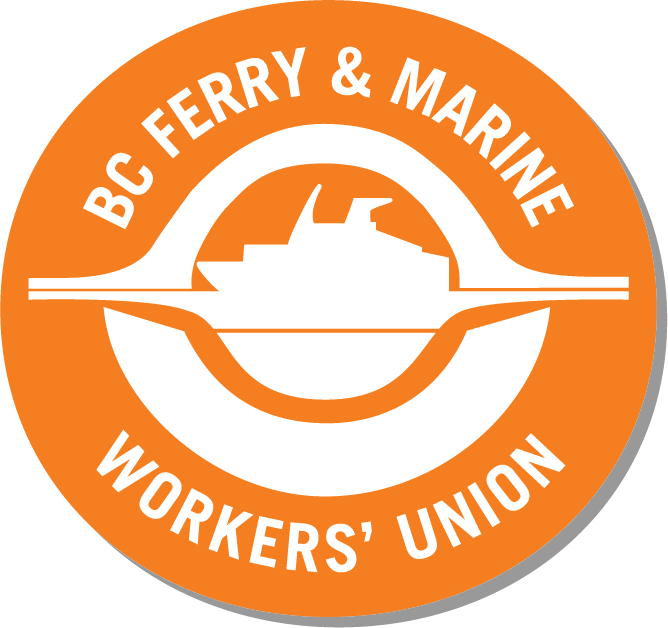Bulletin #7
March 6, 2020
COVID-19 VIRUS
Our Union is keeping a close watch on the spread of the COVID-19 virus. Because our Union is a public transport Union, an uncontained community outbreak or epidemic of COVID-19 in British Columbia would likely put our members at significantly higher risk of infection. The risk of infection in British Columbia is currently LOW.
What You Should Know
The majority of people infected by COVID-19 do not become severely ill, and experience their illness much like a bad seasonal flu (approx. 80% of infected). Those at HIGH RISK of critical or fatal infection fall broadly into two categories:*
- Those with other serious illnesses, foremost being those who are immunocompromised or those who suffer from cardiovascular diseases (heart and lung conditions), cerebrovascular diseases (e.g. stroke), diabetes, and/or cancer; AND
- The elderly.
It should be assumed that those who are both elderly and ill are at the highest risk.
Alternatively, while the young and healthy are unlikely to suffer serious harm if infected, the spread of the illness puts the high risk* population at increased risk of harmful infection.
What You Should Do
STAY AT HOME IF YOU ARE SICK – DO NOT COME INTO WORK: WHO guidelines state anyone with even a mild cough of low-grade fever (37.3 C) should stay home. Additionally, anyone taking acetaminophen, ibuprofen or aspirin should stay home as these medications can mask symptoms. If you have been in direct contact with a community outbreak of COVID-19 (e.g. returning from a country or region currently experiencing an epidemic of COVID-19 like Iran or China) you should self-isolate for 14 days.
If you are not coming into work, let your crewing office know ASAP. Note: If you are self-isolating because of direct exposure to a community outbreak, even if you display no symptoms, you are entitled to STIIP (sick days); human resources may require evidence to confirm.
WASH YOUR HANDS REGULARLY AND PRACTICE GOOD HYGEINE: Wash your hands like you’re trying to get a bad smell off them using soap and warm water. If you are unable to wash your hands, use hand sanitizer. Unless you’ve just washed or sanitized your hands, don’t touch your face. If you have to cough or sneeze, do so into the elbow of your sleeve. In the event of a local epidemic, use social isolation tactics (e.g. keep your distance from others where possible, avoid unnecessary travel, etc.).
IF YOU ARE AT HIGH RISK* OR CARE FOR A DEPENDENT AT HIGH RISK*: Talk to your Human Resources Office about an accommodation to lower your risk of exposure, and let them know you may not attend work if risk of community transmission increases. In the event of a local epidemic, front line workers at high risk* or caring for dependents at high risk* should consider staying home. Note: If you are unsure about an accommodation, or run into problems seeking an accommodation, please contact our Union Office or your Local President; Human Resources may require evidence to confirm.
What Our Union Is Doing
Our Union is in dialogue with BC Ferries to ensure all proper precautions are taken in view of the current COVID-19 outbreak, including urging clearly and unequivocally that employees should stay home if they are sick, and advising that sick employees will be sent home.
In the event of a local epidemic, we are urging that BC Ferries to plan for the following:
- Extra staff for cleaning and disinfecting using appropriate equipment and PPE;
- Extra staff for screening for COVID-19 symptoms during pre-boarding and while underway;
- Advising and employing social isolation measures (this could include asking passengers to stay in their cars, using tap to pay where possible, and using disinfecting stations prior to any transactions);
- Preparing signage and announcements per the above points;
- Identify OFAs who respond to the public as workers at high risk of infection, and implement appropriate controls; AND
- Alteration of service delivery, including closing food and retail service, reduction of service, and cancellations.
Summary
The risk of COVID-19 in our communities is currently LOW. The vast majority of our members are not at high risk in the event of infection. Should the risk of infection increase, our Union is asking BC Ferries to take the necessary steps to ensure the health and safety of everyone, and particularly those who are high risk.
View as a pdf: Bulletin #7 COVID-19 Virus
